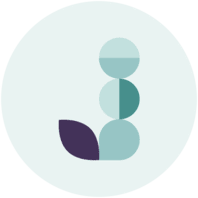What are the Differences Between CDs, Money Markets, and High Yield Savings Accounts?
Banks are offering some of their highest rates in years for deposits, especially for those in savings accounts, money markets, or CDs. With rates starting around 4.5% for a high yield savings account, deposit accounts like these are a safe bet for people who are wary of investing cash they’ve allotted for emergencies or special purchases.
One reason many people are hesitant to invest that money is risk - these products aren’t considered investments, so they don’t carry the same concerns as the stock market. CDs, money market accounts, and savings accounts - traditional or high yield - are all covered by the FDIC. Up to $250,000 is federally insured when held with an FDIC-insured financial institution.
Here is a brief overview of these interest-earning deposit accounts and how they compare to one another, though specifics will vary from one bank or credit union to another.
Certificates of Deposits (CDs)
Many banks and credit unions offer certificates of deposit (CDs), and they often offer higher rates than traditional savings accounts. The rates may increase with larger deposits, and they are fixed for the entire term. The downside is that any money held in a CD is locked in for a specific period of time, anywhere from a few months to several years.
While CDs typically offer the highest rates of the three, there are penalties for taking money out early, even if it’s just a portion of the balance, in most cases. This will ultimately decrease earnings and annual percentage yield.
Money Market Accounts
Money market accounts function more like a checking account than a CD or savings account. One key feature of money markets is that you can write checks on the account or even spend with a debit card in some cases, just as you would with a checking account.
Keep in mind that interest rates are usually variable with these accounts, and they may have steeper balance minimums to earn the highest rates and avoid monthly fees.
High Yield Savings Accounts
A high yield savings account acts as a traditional savings account, but with rates closer to those of CDs or money market accounts. Due to federal regulations, savings accounts have historically been limited to a few withdrawals per month, so they retain some liquidity like a money market without the inflexibility of a CD term that’s locked-in for a few months to years.
There’s a reason people use high yield savings accounts for their emergency funds. With APYs closer to money market rates, the savings protection of the FDIC, and more access to cash than a CD, HYSAs are a true “Goldilocks” account.
Banks are eager for deposits right now, and that continues to drive savings rates higher. But don’t wait too long - this is the perfect chance to watch your emergency fund snowball.
Juno is negotiating with banks to offer high yield savings accounts with rates over 5%, plus exclusive benefits for the group. Join 10,000+ members to start earning more today.

Written By
Juno Team
Juno came into existence to help students save money on student loans and other financial products through group buying power by negotiating with lenders. The Juno Team has worked with 200,000+ students and families to help them save money.

